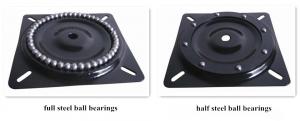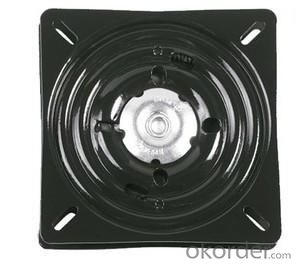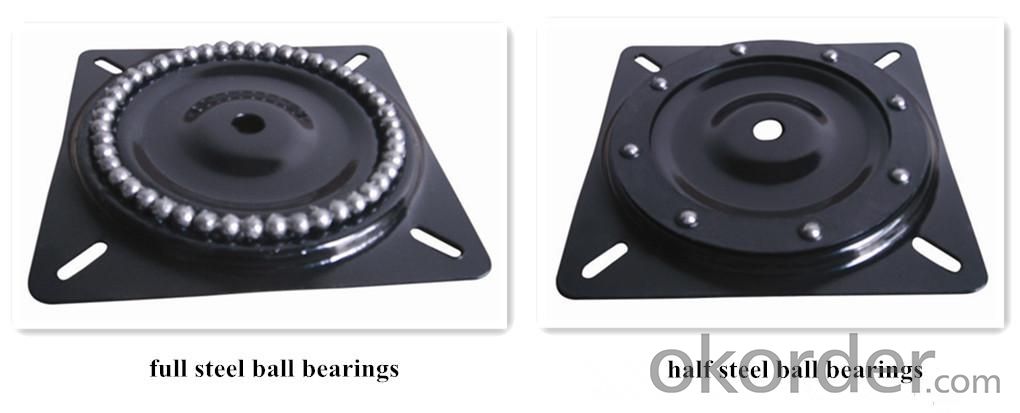Swivel Plate SV4801
- Loading Port:
- China Main port
- Payment Terms:
- TT or LC
- Min Order Qty:
- 1000pcs pc
- Supply Capability:
- 40000 Pieces Per Month pc/month
OKorder Service Pledge
OKorder Financial Service
You Might Also Like
Quick Details of Swivel Plate SV4801:
Type: Other Furniture Hardware Place of Origin: Guangdong, China (Mainland) swivel mechanism surface: powder coating
materials: steel origin place: China color: black size: 200*200*2.0mm structure: full bearings and half of bearings
Specifications of Swivel Plate SV4801:
swivel seat plate is made of the steel .And it is a half of bearings ,
1.swivel seat plates made of steel
2.that is 180degrees
3.The size is 200*200*2.0mm
4.structure :a half of bearings
5.surface :powder coating
6.color:black
Using:peisure chair ,bar chair ,bar stool .and other
Product Photos:
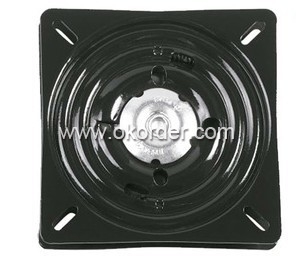
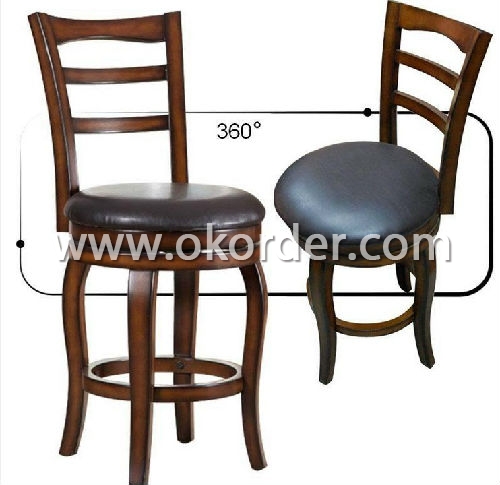
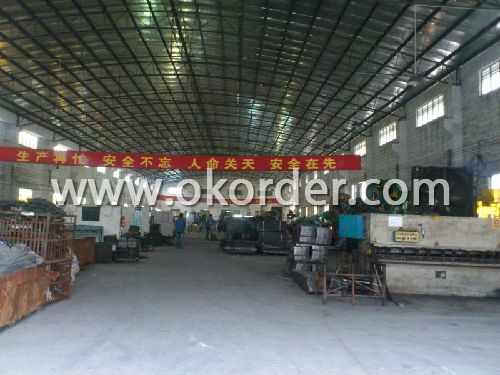
Packaging & Delivery:
Packaging Details: The size of the box is 21.5*20.5*2.3,Each box hold 20 pcs.And each box weight 27kg .
Delivery Detail: 30days
- Q: What are the common applications of stainless special steel?
- Stainless special steel, which is also known as stainless steel, possesses unique properties and characteristics that enable it to be extensively utilized in a wide range of applications. Some of the common uses of stainless special steel include: 1. In the construction industry, stainless steel is favored by architects and engineers for building facades, roofing, and structural components due to its high strength, corrosion resistance, and aesthetic appeal. 2. Within the automotive industry, stainless steel is extensively employed in the manufacturing of exhaust systems, mufflers, fuel tanks, and decorative trims, thanks to its resistance to corrosion, heat, and impact. 3. The aerospace industry utilizes stainless steel for the production of aircraft components such as frames, engine parts, and landing gear. This is due to stainless steel's exceptional strength-to-weight ratio, high-temperature resistance, and corrosion resistance, which make it suitable for the demanding conditions of aerospace applications. 4. In the medical industry, stainless steel is widely used for the manufacture of surgical instruments, implants, and medical equipment. Its biocompatibility, corrosion resistance, and ease of sterilization make it an ideal material for critical medical applications. 5. The food processing industry relies heavily on stainless steel for the manufacturing of storage tanks, pipes, and containers. This is because stainless steel possesses hygienic properties, corrosion resistance, and is easy to clean, ensuring the integrity and safety of food products. 6. The chemical industry makes extensive use of stainless steel due to its resistance to corrosion from various chemicals and acids. It is employed in the production of storage tanks, pipes, valves, and other equipment required in chemical processing plants. 7. In the marine industry, stainless steel is widely employed for manufacturing boat fittings, propellers, and underwater structures. Its resistance to corrosion from saltwater and harsh marine environments make it an excellent choice for marine applications. 8. The energy industry utilizes stainless steel in the manufacturing of pipelines, valves, and heat exchangers. Its high-temperature resistance, corrosion resistance, and durability make it suitable for use in power plants, oil refineries, and nuclear facilities. In summary, stainless special steel is a versatile material with exceptional properties, including corrosion resistance, strength, durability, and aesthetic appeal. This versatility allows it to find applications in various industries.
- Q: What are the different types of alloy steel?
- There are several different types of alloy steel, including stainless steel, tool steel, high-strength low-alloy steel, and maraging steel.
- Q: How does special steel contribute to the power generation aftermarket industry?
- Special steel plays a crucial role in the power generation aftermarket industry by providing high-quality and durable materials that are essential for the construction and maintenance of power generation equipment. Special steels, such as stainless steel and alloy steel, possess unique characteristics that make them well-suited for the demanding conditions and requirements of the power generation sector. One of the key contributions of special steel to the power generation aftermarket industry is its exceptional resistance to corrosion and oxidation. Power generation equipment, such as gas turbines and steam generators, operate in harsh environments where they are subjected to extreme temperatures, pressure, and exposure to various chemical elements. Special steel's corrosion resistance ensures that the equipment can withstand these challenging conditions, thereby minimizing the risk of failure and extending the lifespan of the equipment. Additionally, special steel offers excellent strength and toughness, allowing power generation equipment to withstand high mechanical stress and fatigue. The power generation industry relies on turbines, boilers, and other heavy machinery that are subjected to continuous operation and significant loads. Special steel's high strength and durability enable these components to endure the demanding conditions and effectively handle the power generation process, ensuring safe and reliable operation. Another significant contribution of special steel to the power generation aftermarket industry is its ability to maintain dimensional stability under extreme temperatures. Power generation equipment often operates at high temperatures, and special steel's thermal stability prevents distortion and deformation, ensuring that the equipment retains its shape and functionality over time. Moreover, special steel's versatility allows for the production of various components and parts, customized to meet the specific requirements of power generation equipment. Whether it is turbine blades, boiler tubes, or heat exchangers, special steel can be tailored to provide the desired mechanical properties, corrosion resistance, and thermal stability needed for each application. In summary, special steel is an indispensable material in the power generation aftermarket industry. Its corrosion resistance, strength, toughness, thermal stability, and versatility make it an ideal choice for constructing and maintaining power generation equipment. By providing reliable and durable materials, special steel contributes to the efficiency, safety, and longevity of power generation systems, ensuring the continuous supply of electricity to meet the growing demands of our modern world.
- Q: Can special steel be used in the oil refinery industry?
- Yes, special steel can be used in the oil refinery industry. Special steel, such as stainless steel or high alloy steel, is often preferred in the oil refinery industry due to its superior corrosion resistance and high temperature strength. It is commonly used in various applications, including piping, tanks, heat exchangers, and valves, to ensure durability and reliability in the harsh and corrosive environment of oil refineries.
- Q: Classification of special steel products
- Carbon steel, also called carbon steel, is an iron carbon alloy with a carbon content of less than 2% wc. Carbon steel, in addition to carbon, usually contains a small amount of silicon, manganese, sulfur and phosphorus.Carbon steels can be divided into three categories: carbon structural steel, carbon tool steel and free cutting structural steel by use. Carbon structural steel can be divided into two kinds of structural steel and machine building steel.
- Q: What are the different non-destructive evaluation techniques used for special steel?
- There are several non-destructive evaluation techniques used for special steel, including ultrasonic testing, magnetic particle inspection, liquid penetrant testing, eddy current testing, and radiographic testing. These techniques are used to detect flaws, defects, and structural integrity issues in special steel without causing any damage to the material.
- Q: How does special steel contribute to reducing product costs?
- Special steel contributes to reducing product costs in several ways. Firstly, special steel is known for its high strength and durability, which allows manufacturers to design and produce products that have a longer lifespan. This reduces the need for frequent replacements or repairs, thus saving costs in the long run. Additionally, special steel can be customized to meet specific requirements, allowing for the production of lighter and more efficient products. This can lead to savings in terms of raw material usage, transportation costs, and energy consumption. Moreover, special steel often has excellent corrosion resistance, reducing the need for additional protective coatings or maintenance, which can also result in cost savings. Overall, the utilization of special steel in manufacturing processes helps optimize product performance, longevity, and efficiency, thereby contributing to reducing product costs.
- Q: What are the requirements for special steel used in wind turbines?
- The reliability, efficiency, and durability of large-scale renewable energy systems, such as wind turbines, rely heavily on the crucial requirements for special steel. Here are some key considerations: 1. Strength and Durability: To withstand the harsh operating conditions, including strong winds, vibrations, and extreme temperature variations, wind turbine steel must possess exceptional strength and durability. Its high fatigue resistance allows it to endure cyclic loading over the turbine's operational life, which can span up to 20-25 years. 2. Corrosion Resistance: Wind turbines often face corrosive saltwater and salt-laden air in coastal or offshore environments. As a result, the special steel used must exhibit superb corrosion resistance to prevent degradation and ensure long-term performance. 3. Weldability: The steel chosen for wind turbines should be suitable for welding processes, enabling efficient fabrication and assembly of turbine components. Excellent weldability streamlines construction and maintenance, reducing downtime and associated costs. 4. Low Temperature Toughness: Wind turbines are frequently situated in cold regions, such as arctic or mountainous areas. Consequently, the special steel employed must possess good low-temperature toughness, ensuring its mechanical properties remain intact even in frigid climates. 5. Magnetic Properties: Wind turbines utilize electrical components like generators and transformers, which operate within electromagnetic fields. The special steel used in these components should possess specific magnetic properties to minimize energy losses and maximize electrical system efficiency. 6. Cost-effectiveness: While meeting all the aforementioned requirements, the special steel employed in wind turbines must also be cost-effective. Striking a balance between performance and cost ensures the economic viability of wind energy projects. Meeting these requirements is vital for the long-term operation and sustainability of wind turbines, enabling them to generate clean and renewable energy efficiently.
- Q: What are the main advantages of using special steel in the construction of bridges?
- The main advantages of using special steel in the construction of bridges are its high strength-to-weight ratio, excellent corrosion resistance, and durability. Special steel possesses superior mechanical properties, allowing for the construction of lighter and more efficient bridge structures. It also offers enhanced resistance to environmental factors like moisture, temperature variations, and chemical exposure, leading to longer service life and reduced maintenance costs. Additionally, special steel facilitates the use of innovative and complex bridge designs, enabling architects and engineers to create unique and aesthetically pleasing structures.
- Q: How is special steel used in the aerospace supply chain?
- Special steel is used in the aerospace supply chain for various critical applications. It is primarily used for manufacturing aircraft components such as engine parts, landing gears, and structural components. The high strength, durability, and corrosion resistance of special steel make it ideal for withstanding the demanding conditions and extreme temperatures experienced during flight. Additionally, special steel's unique properties allow for lightweight designs, improving fuel efficiency and overall aircraft performance.
1. Manufacturer Overview
| Location | Guangdong, China |
| Year Established | 1996 |
| Annual Output Value | US$ 5 to US$ 10 Million |
| Main Markets | 40.00% Domestic Market 10.00% Eastern Asia 10.00% Eastern Europe 8.00% Southeast Asia 8.00% South America 5.00% South Asia 5.00% Southern Europe 5.00% North America |
| Company Certifications | Test report for 3 section slide |
2. Manufacturer Certificates
| a) Certification Name | |
| Range | |
| Reference | |
| Validity Period |
3. Manufacturer Capability
| a) Trade Capacity | |
| Nearest Port | Shunde, Huangpu, Shenzhen |
| Export Percentage | 61% - 70% |
| No.of Employees in Trade Department | 3-5 People |
| Language Spoken: | English, Chinese, Spanish, Japanese |
| b) Factory Information | |
| Factory Size: | 1,000-3,000 square meters |
| No. of Production Lines | 3 |
| Contract Manufacturing | OEM Service Offered Design Service Offered Buyer Label Offered |
| Product Price Range | Average |
Send your message to us
Swivel Plate SV4801
- Loading Port:
- China Main port
- Payment Terms:
- TT or LC
- Min Order Qty:
- 1000pcs pc
- Supply Capability:
- 40000 Pieces Per Month pc/month
OKorder Service Pledge
OKorder Financial Service
Similar products
Hot products
Hot Searches
Related keywords
